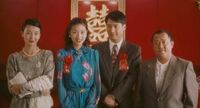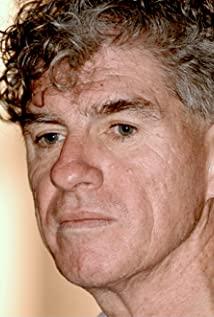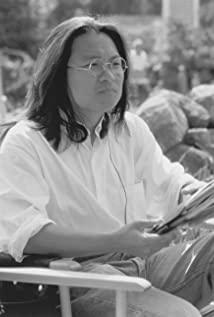The dramatic effect of the film is in play from the very beginning: the crowded and dark train arrives in Kowloon, Hong Kong, and Li Xiaojun, played by Liming, is leaning back against a strange woman on the train, and falls asleep until the woman suddenly falls. After getting up, I woke up like a dream; we didn't know until the end of the film that this strange woman was Li Qiao played by Maggie Cheung. Li Xiaojun's hometown Wuxi and Li Qiao's hometown Guangzhou are both the most economically and culturally developed cities in mainland China. When Hong Kong first opened as a port 150 years ago, Wuxi was the central city of the prosperous Jiangnan region, while Guangzhou was the The only region in the Qing Empire with foreign trade privileges. Compared with Wuxi and Guangzhou, Hong Kong, with a population of only a few thousand people, is not worth mentioning. However, time has changed, and in 1986, Hong Kong is an international financial and commercial center and the bright "Oriental Pearl" of the British Empire; while Wuxi and Guangzhou are in the initial stage of economic development, and they are dwarfed by Hong Kong. Li Xiaojun, who had just arrived in Hong Kong, was wearing an old-fashioned blue cotton-padded jacket and could not speak English or Cantonese. Under the framework of the huge economic gap, Hong Kong has become synonymous with trendy, advanced and beautiful, while the prosperous Jiangnan Wuxi for thousands of years has been labeled as backward, ignorant and poor. If you want to integrate into Hong Kong, you must get rid of the mainland traces on yourself. This kind of mentality drives Li Xiaojun to learn Cantonese, English, and earn money desperately, which is why he was so excited and happy when he went to McDonald's for the first time. Using McDonald's advertising paper to write a letter to her lover Xiaoting in her hometown, on the one hand, it is to let Xiaoting understand that she has gradually integrated into the commercial civilization of Hong Kong; Means, overlooking their past in Wuxi.
Through McDonald's, Li Xiaojun got to know Li Qiao and gradually developed a good impression of Li Qiao. At the beginning, Li Xiaojun actually only played the role of Li Qiao's boring partner and a tool for making money. What is intriguing is that Li Xiaojun calmly took advantage of Li Qiao. Perhaps in Li Xiaojun's view, this kind of sacrifice and use is the necessary price to pay for realizing his identity as a Hong Konger. The relationship between Li Xiaojun and Li Qiao at the beginning, and the interaction between giving and receiving between Hong Kong and the mainland in the early days of reform and opening up, formed an ingenious intertextual relationship. The colonial era background corresponds darkly.
Li Qiao had an ambiguous attitude towards Li Xiaojun's love at first. She repeatedly emphasized that she and Li Xiaojun were two different people, and when Li Xiaojun found out that he was also from the mainland, she immediately responded with the words "Hong Kong and Guangdong have the same language and are originally one" to reflect the relationship between herself and Li Xiaojun. identity difference. If Li Xiaojun's identity in Hong Kong is based on Li Qiao as a template, then Li Qiao's later choice of Brother Leopard, who grew up in Hong Kong and was in the underworld, is a completely understandable thing. In Li Xiaojun's eyes, Li Qiao is a real "Hong Kong people"; in Li Qiao's eyes, only people like Brother Leopard can be regarded as real "Hong Kong people". Through the chain of Li Xiaojun-Li Qiao-Leopard Brother, after a mainlander arrives in Hong Kong, the context of localization and subjectivization is clearly visible.
However, such a chain is not the end. One of Li Qiao's lines in the film can be called the title: "Mainlanders want to come to Hong Kong now, but Hong Kong people want to go to Australia and Canada to immigrate." A true portrayal of human mentality. As a result, the time point of the movie was from the 1980s to the 1990s, and the location of the story moved from Hong Kong to the United States. It seems that the western world represented by the United States is the end point of Li Xiaojun and Li Qiao's identity. However, at the end of the film, under the Statue of Liberty in the United States, a mainland tourist remarked another footnote to this historical conclusion: "Now Hong Kong people and Westerners have all gone to the mainland to invest, and they went out back then. The group of people in the movie now regret it and want to go back to China!" The rise of the mainland economy not only makes the identity of the two protagonists in the film confusing again; to a certain extent, it is also the change in the relationship between the mainland and Hong Kong. More complex and confusing root causes.
The most important clue of the whole film is the famous song "Sweet Honey" by Taiwan singer Teresa Teng. To choose Teresa Teng as the symbolic element of the whole film, Chen Kexin can be described as well-intentioned: for mainlanders in the 1980s, Teresa Teng's sweet singing represented the beautiful and gentle other side, and was synonymous with fashion and trendy; As far as Hong Kong is concerned, liking Teresa Teng's songs has actually become a status symbol for "rusty" mainlanders. This is why Li Qiao easily sold more than 4,000 Teng Lijun tapes in Guangzhou, but sold the same product in Hong Kong, but lost everything. The reason why Teresa Teng can become the love symbol of Li Xiaojun and Li Qiao is that she not only represents the taste of the trendy mainlanders at that time, but also represents the inner desire of the two to pursue the other side of the world together. The film ends on the day of Teresa Teng's death on May 8, 1995, just over two years after the return of Hong Kong. . Did Teresa Teng's death signal the disappearance of the common spiritual bond between Li Xiaojun and Li Qiao, or did it imply that Hong Kong people are more at a loss for their identity? The audience can comprehend by heart.
(This article was first published on my WeChat account: Wengonshu, WeChat account: wengonbooks, welcome to pay attention!)
View more about Comrades, Almost a Love Story reviews











